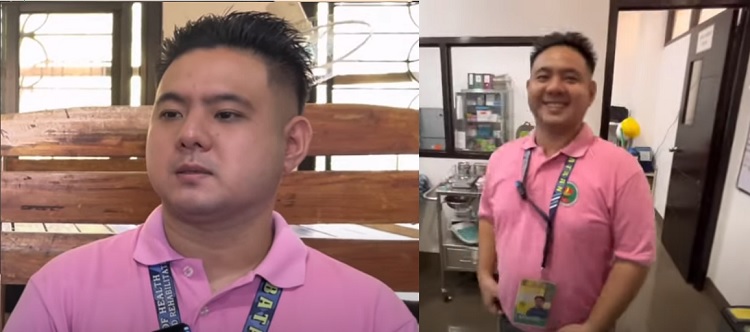In an exclusive interview with Julius Babao, former child star Jiro Manio shares life after rehab.
In the dimly lit room of a cozy café in the heart of Manila, two men sat across from each other, their faces illuminated by a warm, golden glow. The atmosphere was charged with anticipation, for this was no ordinary conversation; it was an exclusive interview between veteran journalist Julius Babao and former child star turned comeback kid, Jiro Manio.
Jiro Manio, once a beloved child actor whose radiant talent illuminated Philippine cinema, fell into a dark abyss of addiction and despair, making headlines for all the wrong reasons. But today, sitting before us, he is a testament to the human spirit’s resilience and the power of redemption.
Julius Babao, renowned for his incisive interviews and empathetic approach, was the perfect person to guide us through the journey of Jiro’s life, from his early fame to his darkest moments and, ultimately, his inspiring road to redemption.

A Star is Born: Jiro Manio’s Rise to Fame
Julius Babao began the interview by revisiting Jiro’s early career. At the tender age of nine, Jiro made his acting debut, capturing the hearts of audiences with his infectious smile and natural talent. His performances in films like “Magnifico” and “Bagong Buwan” earned him critical acclaim, awards, and a legion of fans who saw him as a shining star in the making.
As Jiro reminisced about those days, his eyes sparkled with a mixture of nostalgia and gratitude. “I was living a dream,” he said, “and I felt invincible.”
The Dark Descent: Jiro’s Struggles with Addiction
However, fame’s bright spotlight cast a long shadow over Jiro’s life. As he transitioned into his teenage years, he faced mounting pressure, personal struggles, and the allure of vices that eventually led him down a treacherous path. His battle with substance abuse became headline news, and his once-promising career was overshadowed by scandal.
Julius Babao listened attentively as Jiro opened up about his darkest moments. “I hit rock bottom,” Jiro admitted. “I lost everything – my career, my family, my self-respect. Addiction had its grip on me, and I felt powerless.”
The Road to Redemption: Jiro’s Journey Back
It was during his darkest hour that Jiro found a glimmer of hope. With the support of friends and a newfound determination, he sought rehabilitation and embarked on a long and arduous journey to recovery. “Rehab was the wake-up call I needed,” Jiro said, his voice filled with resolve. “I realized I had a second chance, and I couldn’t let it slip away.”
Julius Babao’s empathy shone through as he delved into the steps Jiro took to rebuild his life. Jiro recounted his commitment to sobriety, therapy, and reconnecting with his family, all of which played pivotal roles in his transformation.
A Second Act: Jiro’s Return to the Limelight
The interview then shifted towards Jiro’s remarkable comeback. After years of introspection and hard work, he decided to reenter the world of entertainment, initially in smaller roles. His return to the screen was met with a mixture of curiosity and skepticism from the public, but Jiro persevered.
Today, Jiro Manio is back in the spotlight, not as the child star he once was, but as a man who has faced his demons and emerged stronger. He has received praise for his mature and nuanced performances, earning respect from peers and critics alike.
Conclusion: Jiro’s Message of Hope
As the interview drew to a close, Julius Babao asked Jiro about the message he wants to convey to others facing similar struggles. With a gentle smile, Jiro said, “Never give up on yourself. No matter how deep you’ve fallen, there’s always a way back up. Reach out for help, and don’t be afraid to fight for a better life.”
In a society often too quick to judge and condemn, Jiro Manio’s story serves as a reminder that redemption is possible, and that every person, no matter how troubled their past, has the potential for a brighter future.
As Julius Babao and Jiro Manio parted ways, it was clear that this interview was more than just a conversation; it was a beacon of hope, illuminating the path to recovery and redemption for all who dare to follow it.
